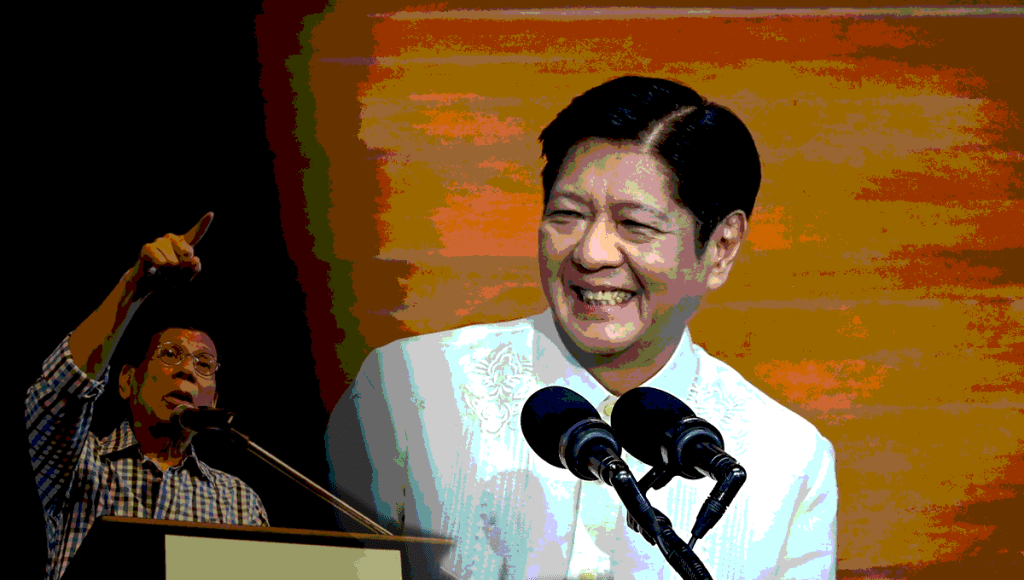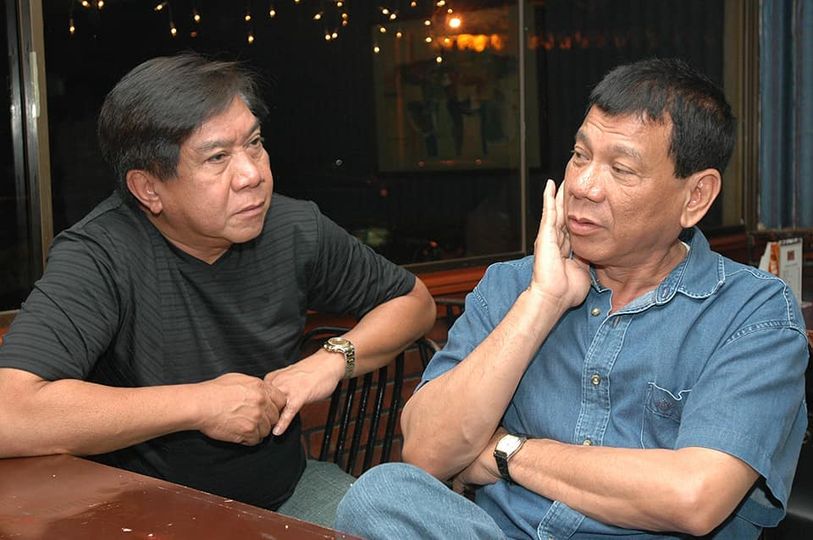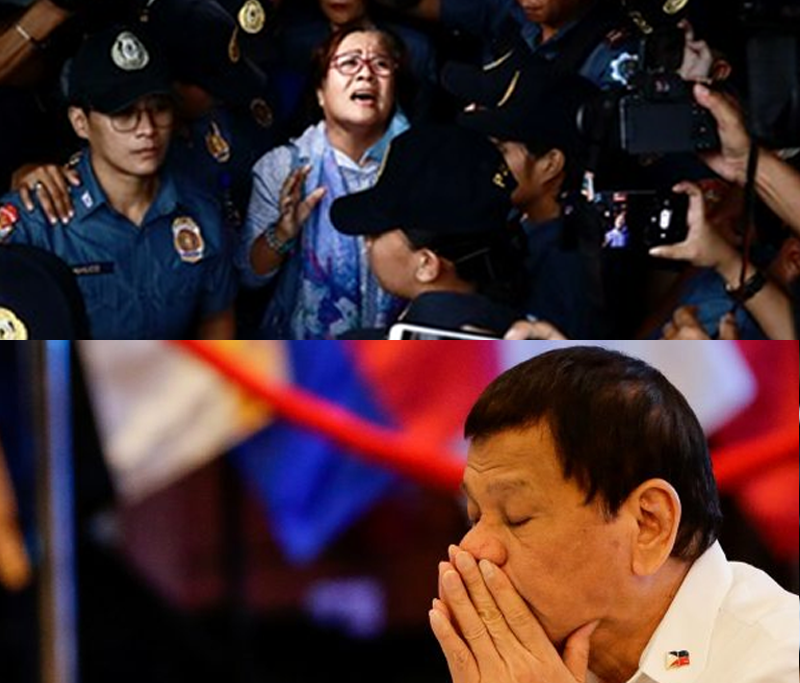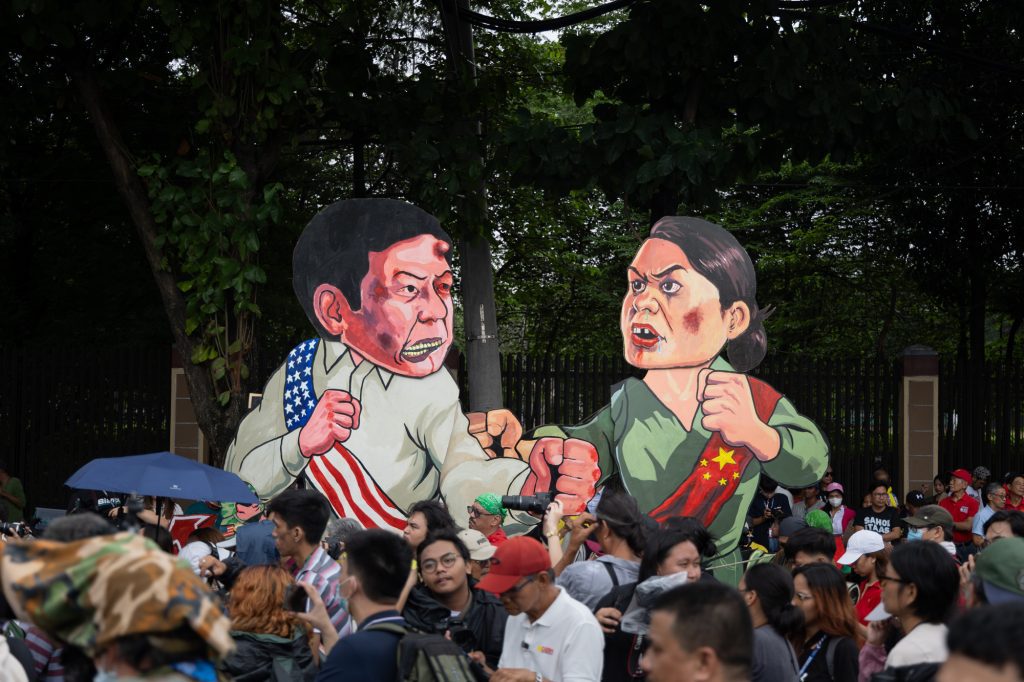
The video that came out from the Duterte camp before President Bongbong Marcos Jr.’s SONA last Monday was supposed to stir scandal and disrupted our attention from the SONA.
But the SONA went as scheduled. The speech followed by applause, then commentaries from the media, analysts, and critics.
That video made news mostly among the diehard of Duterte supporters, and from defense officials who called it a deepfake, a “malicious crude attempt to destabilize the administration” and warned that they will get the culprits.
That vaunted propaganda machinery of the Duterte camp, one that relies on barbs, scandals, and disinformation, appeared to have failed this time to even rattle the Marcoses.
Had this video been released during the 2022 elections, whether deepfake or not, it could have spelled the difference on Marcos’ presidential run.
But releasing it now, at a time when the Duterte dynasty is facing criticisms left and right, from confidential funds to the ICC probe, plus its diminishing count of allies and online influencers (or trolls), the video didn’t gather much velocity online to hit its target.
Perhaps also, the public has grown wary and weary of the Duterte playbook.
The former president Rodrigo Duterte, and his camp (meaning a collective of supporters and paid propagandists), have long relied on this playbook of playing up rumors, scandals, and hype to build their political capital, as noted by long-time observers of Davao City politics.
The rise of Duterte was built around this playbook. In his first run as mayor in 1988, his camp threw potshots on the sexual orientation of the OIC mayor that played on the homophobic culture of the 80s.
In his re-election run in 1992, which marked the start of his long-time rivalry with the late First District Congressman and House Speaker Prospero Nograles Jr., his camp was believed to have distributed a photo that showed Nograles’ wife washing her hands with alcohol after a handshaking sortie in a community, which stood in contrast to Duterte’s persona of being able to mingle with the common folk.

In his comeback bid for the mayoral post in 2002 where he dethroned his former ally Benjamin de Guzman, a leaflet coming from an anonymous alleged that de Guzman fathered a son in his college years, complete with a photo of a young man that looked strikingly like de Guzman.
In the 2010 mayoral run of Sara Duterte against Nograles, the Duterte camp dangled the “Burlesk King” video scandal against the House Speaker. This scandal had hounded Nograles for years, as some media alleged that he was the politician found running out of a hotel naked after being caught in flagrante delicto with a popular local media personality. No video has ever surfaced.
Not only were his political rivals derailed with such methods, but his critics as well, such as Fr. Pete Lamata, one of the few priests in Davao City who once openly deplored the death squad killings.
Miffed by Lamata’s refusal to accept donations from the city government to his parish constituents in 2009, Duterte went on an episode of his Gikan sa Masa, Para sa Masa program that had him pull out a marriage certificate showing the priest had a secret marriage when he was still a young priest.
Lamata was suspended for months by the Catholic hierarchy and has shied away from the public since then.
During Duterte’s presidential campaign in 2016, photos circulated showing the priest and Duterte having a civil conversation over dinner.
Duterte has created a persona throughout his career as one cunning politician who survived criticisms thrown at him and is able to turn the tables around with bombshells.

During his presidency, the biggest target of his playbook was former Senator Leila de Lima. As the senator was sent to jail for seven years on fabricated charges, the Duterte camp fabricated a sex video scandal. Their playbook weaponized Facebook to the hilt, flooding disinformation and hate messages. The intent was not only to derail the probe de Lima started on the death squad killings, but it was meant to damage her reputation.
That alleged sex video, like all three cases against her, is non-existent. De Lima walks free again and finding her form to fight Duterte. It shows that the political playbook does not hold water in the grain of truth.
More so, the Duterte playbook does not stand a chance against the Marcoses, who are perhaps the masters of the political playbook of mythmaking and manipulation. The Marcos history is one built by myths of Maharlika war medals, Tallano gold, a New Society (Bagong Lipunan) built on Red scare and attacks against a “greedy oligarchy”, while enriching his cronies and fellow Ilocano police generals.
Their next generation perpetrates the same mythmaking with Bagong Pilipinas and the Maid in Malacañang movie series. They can also dish out negative campaigning like the “Len-Len” video series. They even survived truths such as the case against their plundered wealth, what more a perceived deepfake video.

To think of it, any criticisms on our nation’s leaders should go beyond name-calling, rumor-mongering, and sharing of memes, which this playbook had dragged the public into.
There are legitimate issues the public could raise against Marcos Jr – inflation, low wages, unemployment, climate change problems, education and health woes, and the need for a clear vision for our country. The Left and the opposition seem to be more capable of taking those issues on and pushing for reforms.
It’s time to move ahead and leave politicians clutching old playbooks behind. (davaotoday.com)
duterte, marcos, philippines









